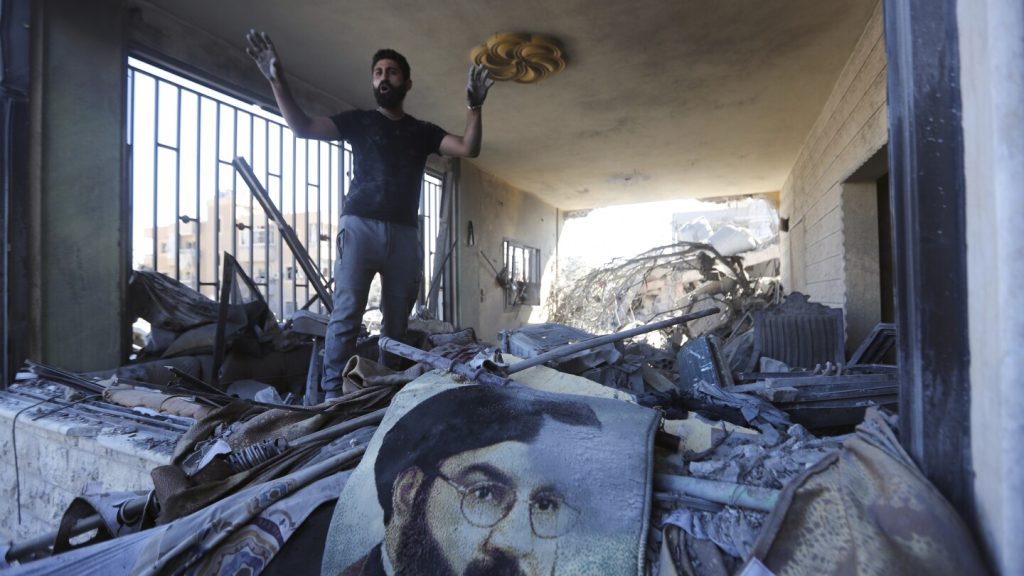The conflict between Israel and Hezbollah has escalated following a missile fired from Yemen that set off air raid sirens across Israel’s central region. Israeli Prime Minister Benjamin Netanyahu has vowed to continue strikes against Hezbollah until they stop firing rockets across the border. Tens of thousands of people have been displaced by the fighting on both sides, with nearly 700 people killed in Lebanon as Israel targets Hezbollah’s military capabilities. Netanyahu, who is attending the U.N. General Assembly meeting, has rejected calls for a cease-fire and stated that Israel will continue to strike Hezbollah with full force until their goals are met.
The Israeli military has intensified its strikes on Hezbollah targets in Lebanon, including the recent killing of a senior Hezbollah commander in a Beirut suburb. Israel has targeted Beirut’s southern suburbs several times in the past week, causing casualties among both Lebanese and Syrian migrants. The conflict has seen Hezbollah launching rockets into Israel, prompting fears of a full-scale war. Israel has considered a ground invasion into Lebanon to drive Hezbollah away from the border, leading to an increase in tensions in the region. The fighting has forced thousands of Lebanese to flee their homes, with Israel preparing for a possible escalation.
International efforts to broker a cease-fire have been met with resistance from both sides, with Netanyahu’s far-right governing partners threatening to suspend cooperation with the government if a temporary cease-fire with Hezbollah is agreed upon. Hezbollah has linked its attacks to the situation in Gaza, where Israel has been engaged in a conflict with Hamas, making a comprehensive cease-fire agreement difficult to achieve. Despite calls for a halt to the violence from major powers, including the United States and European nations, the situation remains tense and the prospect of peace seems distant.
The ongoing conflict has resulted in significant casualties on both sides, with hundreds of people killed and thousands displaced. Israel’s airstrikes in Lebanon have targeted Hezbollah’s infrastructure, while Hezbollah continues to launch rockets into Israel, causing civilian casualties. The situation has raised concerns about the possibility of a wider war between Israel and Lebanon, with the potential for devastating consequences for both countries. The international community is calling for a peaceful resolution to the conflict, but challenges remain in reaching a lasting cease-fire agreement that satisfies all parties involved.
As the violence continues to escalate, the impact on civilian populations in Israel and Lebanon is becoming increasingly severe. The conflict has displaced tens of thousands of people, with many fleeing their homes to seek safety. The risk of further escalation and a full-scale war looms large, with concerns about the potential for widespread destruction and loss of life. Efforts to find a diplomatic solution to the crisis are ongoing, but the situation remains volatile and unpredictable, with the threat of further violence hanging over the region.


